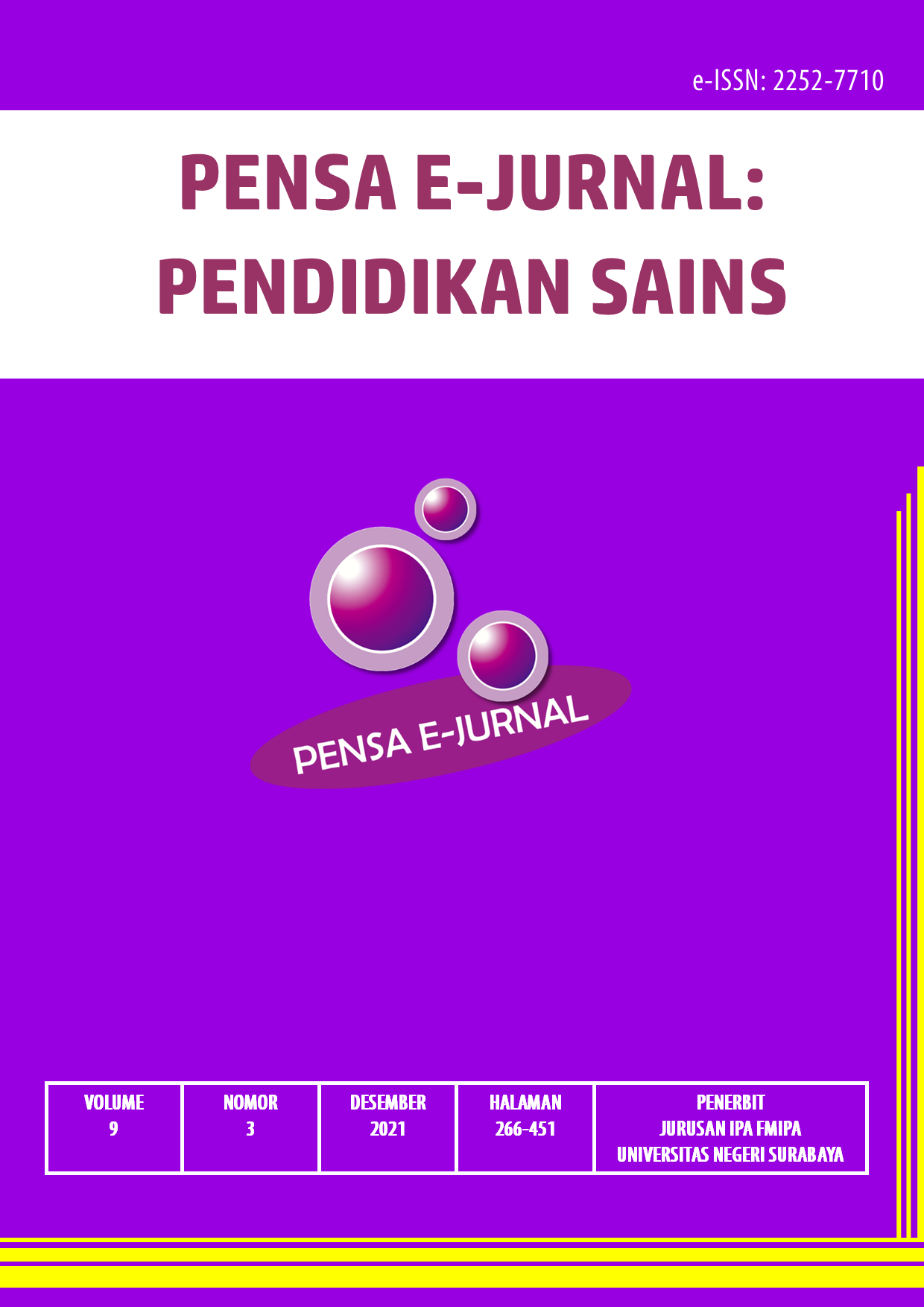STUDI KASUS PENERAPAN PENILAIAN PEMBELAJARAN IPA PADA MASA PANDEMI COVID-19
DOI:
https://doi.org/10.26740/pensa.v9i3.40088Keywords:
authentic assessment, affective, cognitive, psychomotorAbstract
This research is a type of qualitative research using a case study design that aims to analyze the application of science learning assessment and the obstacles that occur during the distance learning process. The application of the assessment is reviewed in an authentic assessment process which includes aspects of attitude, knowledge and skills. The subjects of this study were the principal and science teacher. The data collection process for this study used interview sheets, observation and documentation of lesson plans, assessment instruments, assessment rubrics and grid questions from five science teachers. The data analysis technique used to explore the data found was using Miles and Huberman's analysis techniques. The results showed that the implementation of authentic assessment has been implemented by science teachers at SMP Negeri Kudu. However, it is not supported by complete physical evidence of the appraisal instrument file and the assessment rubric that was attached to the preparation of the RPP at once. There are still some aspects of implementation that are not in accordance with the authentic assessment guidelines. Such as the assessment of the attitude aspect, sometimes it does not give students the opportunity to assess themselves and their peers, the skills aspect of the assessment rubric preparation that is used is sometimes still not included in the learning device before the practical assessment is carried out. It can be concluded that the application of authentic assessment during the Covid-19 pandemic is very difficult to do in accordance with the assessment systematics because educators cannot directly assess the learning process of students in order to get results that are what they are. Following up on this, it is better if teachers need to complete learning tools in accordance with the assessment systematics so that the application of more precise and objective assessments can be directed and objective so the learning goals can be achieved.
Downloads
Downloads
Published
How to Cite
Issue
Section
 Abstract views: 1146
,
Abstract views: 1146
, PDF Downloads: 2585
PDF Downloads: 2585

















